


Know-C19
We tackle the complex challenges of pandemics and health emergencies caused by infectious diseases.
Group Heads
About
Know-C19 generates and translates knowledge to respond to the ongoing impacts of the COVID-19 pandemic, including long COVID. We identify emerging health threats and solutions to better prevent, prepare and respond to pandemics.
The COVID-19 pandemic is one of the greatest global challenges in human history. It has had a profound effect on the health and wellbeing of communities, the economy and society, exacerbating inequities within and between countries.
During the emergency phase, Burnet played a major role in the Australian and global response, with a focus on the Asia-Pacific region. We did this through collaboration with communities, research and public health partners and governments to create and translation knowledge into solutions and support community-centric responses.
Key strategies included providing evidence-based strategic advice through modelling, intelligence and evidence synthesis and our own research, through the Know-C19 Knowledge Hub. We supported responses on the ground through technical assistance, laboratory strengthening, training and capacity building, supporting essential services and partnerships with communities.
Our current focus includes knowledge generation and research translation to:
- identify, understand and respond to emerging infectious diseases threats and health emergencies
- inform Australian and global policy on pandemic prevention, preparedness and response
- develop and implement evidence-based solutions for clean indoor air, as a vital passive prevention and risk reduction strategy for airborne pathogens and pollutants
- understand and find a treatment for long COVID.
We continue to work in collaborative partnerships to solve these complex challenges with a focus on addressing inequities, applying multi-disciplinary technical skills through a ‘one health’ approach and strengthening systems.
Clean indoor air
A standout lesson from COVID-19 was the knowledge gained, and paradigm shift around the airborne transmission of pathogens, and how to effectively respond. Undoing the 'droplet dogma' and identifying that SARS-CoV-2 (the COVID-19 virus) and many other pathogens predominantly transmit through the air has been a huge leap in science and public health policy.
As a result of this knowledge gain, there is rationale for wider deployment of interventions to prevent airborne pathogens spread in indoor environments, where transmission occurs. A future with clean indoor air will be a major advance in addressing current airborne pathogens and pollutants and puts us in a better position to preventing the next pandemic.
Despite the evidence these interventions work in laboratory settings, there has been limited implementation outside health care settings or policy adoption. Burnet Institute, in collaboration with partners (University of Melbourne, Monash, QUT, CSIRO and Amazon Web Services) is implementing 2 clean indoor air research projects, supported by the Victorian government to address the knowledge and implementation gaps.
The Pathway to Clean Indoor Air project will generate optimised and scalable IAQ models, an investment case and policy and guidance. The ELUCIDAR study will provide evidence on the real-world effectiveness of upper room germicidal UV in reducing COVID-19 in aged care facilities. These studies will inform the scale-up of interventions to reduce the indoor impact of airborne pollutants and pathogens and enhance our preparedness for future airborne pandemics.
Current projects
View 1 moreTesting treatments for long COVID, a collaborative clinical trial
HEAL APT: Harnessing effective approaches for long COVID therapies through an adaptive platform trial.
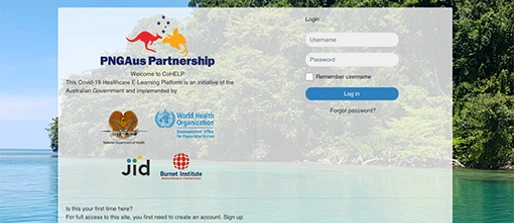
CoHELP: COVID-19 Healthcare E-Learning Platform
The COVID-19 Healthcare E-Learning Platform is an online training portal providing essential knowledge needed to respond to the COVID-19 crisis in Papua New Guinea.
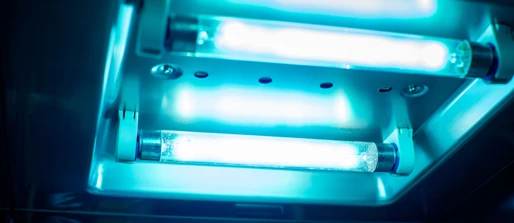
Using ultraviolet light to reduce COVID-19 in aged care homes (ELUCIDAR study)
Ultraviolet light has been used for decades to disinfect the air and prevent disease. This study explores using UV light to reduce COVID-19 infection in residential aged care facilities.
Past projects
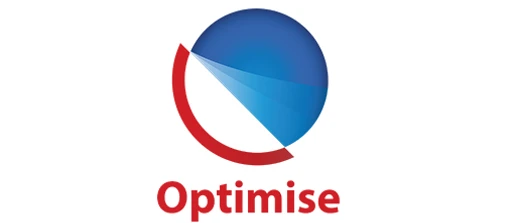
The Optimise Study: Optimising Isolation, Quarantine and Distancing for COVID-19
This project aims to find out how Victorians are experiencing COVID-19 and responding to the measures introduced to stop the spread of the virus.
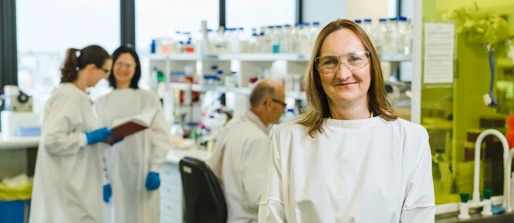
Neutralising antibody assays for COVID-19
Rapid high-throughput neutralisation assays are essential for analysis of immune responses in human infection and animal experiments.
News and features
View 19 more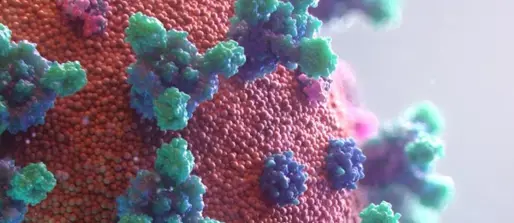
Consequences of COVID-19 linger five years on
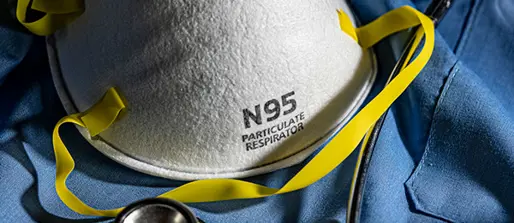
Simple measures lessen hospital acquired COVID-19 infections
In a new study published in the Journal of Hospital Infections, Burnet researchers found simple infection control measures could save lives and reduce costs for hospitals.

Transformative project to improve indoor air quality in Victoria
Burnet welcomes the Victorian Government's $9.87m investment in the Pathway to Clean Indoor Air project.
Featured publications
Preparing Australia for future pandemics: strengthening trust, social capital and resilience
The Medical Journal of Australia
Shanti Narayanasamy et al
Mpox: Neglect has led to a more dangerous virus now spreading across borders, harming and killing people. Leaders must take action to stop mpox now
PLOS Global Public Health
Christine McNab et al
Towards a cure for long COVID : the strengthening case for persistently replicating SARS ‐CoV ‐2 as a driver of post‐acute sequelae of COVID ‐19
The Medical Journal of Australia
Michelle J. L. Scoullar et al
Admission screening testing of patients and staff N95 respirators are cost-effective in reducing COVID-19 hospital-acquired infections
Journal of Hospital Infection
Fenella McAndrew et al
COVID-19 outbreaks in residential aged care facilities: an agent-based modeling study
Frontiers in Public Health
Fenella McAndrew et al
Effectiveness of community-based oral antiviral treatments against severe COVID-19 outcomes in people 70 years and over in Victoria, Australia, 2022: an observational study
The Lancet Regional Health - Western Pacific
Christina Van Heer et al
TB programme outcomes in South Fly District, Papua New Guinea, were maintained through COVID-19
Public Health Action
Mathias Bauri et al
Socioeconomic consequences of the COVID ‐19 pandemic for people who use drugs
Australian Journal of Social Issues
Shelley Walker et al
The effects of COVID-19 on maternal, newborn and child health services in Papua New Guinea
Global Public Health
Lisa M. Vallely et al
Reports and submissions
-
2024 Clean Indoor Air
The 2024 Clean Indoor Air report highlights the significant health and economic impacts of poor indoor air quality. It urges national collaborative action for transformational public health benefits and productivity gains.
2024 Clean Indoor Air report [PDF 6.6 MB] -
Submission to the Joint Standing Committee on Treaties Inquiry into Amendments to the International Health Regulations (2005)
AIID urges Australia to adopt amended International Health Regulations, enhancing pandemic preparedness, cooperation, and equity, citing COVID-19’s lessons and future global risks.
Submission document [PDF 240.0 kB] -
Mortality during the COVID-19 pandemic in Australia
Experts at Burnet have conducted a comprehensive analysis of deaths caused by the COVID-19 pandemic in Australia, with comparison to other countries and territories.
COVID-19 mortality report [PDF 1.4 MB]
-
Burnet Institute’s response to The Commonwealth Government COVID-19 Response Inquiry
The submission provides an analysis of the outcomes and impact of the pandemic in Australia and identifies lessons to assist in planning for future pandemics.
Burnet's submission to the COVID-19 Response Inquiry [PDF 367.4 kB] Supporting documentation for Burnet's submission to the COVID-19 Response Inquiry [PDF 580.6 kB] -
COVID-19 global trends and analyses reports – Volume 1
These reports describe COVID-19 global epidemiology and trends during 2020 and 2021.
December 2020 – Global Trends [PDF 589.7 kB] March 2021 – Global Trends [PDF 647.1 kB] April 2021 – Global Technical [PDF 628.5 kB] May 2021 – Science Snapshots [PDF 1.2 MB] June 2021 – Research Snapshots [PDF 992.6 kB] July 2021 – Technical Snapshots [PDF 3.0 MB] -
COVID-19 global trends and analyses reports – Volume 2
These reports describe COVID-19 global trends and analysis of vaccines and vital variants during 2021.
December 2020 – SARS-CoV-2 Viral Load Dynamics and Infectivity [PDF 461.1 kB] March 2021 – Vaccines and Viral Variants Update [PDF 827.7 kB] April 2021 – Vaccines and Viral Variants Update [PDF 786.5 kB] May 2021 – Vaccines and Viral Variants Update [PDF 1.2 MB] June 2021 – Vaccines and Viral Variants Update [PDF 922.8 kB] July 2021 – Vaccines and Viral Variants Update [PDF 3.4 MB] -
COVASIM modelling: impact of vaccines on epidemic outcomes
This document contains key points and examples that must be read before using Burnet Institute’s Excel-based tool that summarises Covasim's COVID-19 simulations.
COVASIM modelling report June 2021 [PDF 426.9 kB] -
Estimating risks associated with early reopening in Victoria
This 2020 policy brief incorporates COVASIM modelling with estimates of a third COVID-19 wave in Victoria if stage 4 restrictions were eased on certain dates. Prepared for the Victorian Department of Health and Human Services.
Abeysuriya Et Al 2020 Policy Brief [PDF 1.0 MB] -
The Optimise Study reports
Visit The Optimise Study page
Group contacts
Student supervisor contacts
Group members

Associate Professor Suman Majumdar
Chief Health Officer - COVID & Health Emergencies; Deputy Program Director, Health Security and Pandemic Preparedness; Principal Research Fellow

Ryan Barwood
Executive General Manager, Know-C19

Christabelle Adjoyan
Project Director, Pathway to Clean Indoor Air

Professor Helen Cox
Working Group Head

Professor Brendan Crabb AC
Director and CEO; Chair Australian Global Health Alliance and Chair Pacific Friends of Global Health

Elizabeth Dang
Program Manager

Professor Heidi Drummer
Scientific Director for Research Translation; Scientific Director, Burnet Diagnostics Initiative; Principal Investigator, Burnet Vaccine Initiative; Co-Head, Viral Entry and Vaccines Group

Associate Professor Anna Hearps
Deputy Program Director, Disease Elimination; Head, Infection, Inflammation and Innate Immunity

Guy Marks
Head, Lung Health; Senior Principal Research Fellow

Emma Pakula
Senior Policy and Research Fellow, COVID and Health Emergencies

Associate Professor Alisa Pedrana
Senior Research Fellow; Deputy Discipline Head, Public Health; Eliminate Hepatitis C Australia Coordinator

Dr Michael Pellegrini
Research Coordinator

Professor Leanne Robinson
Program Director, Health Security and Pandemic Preparedness; Senior Principal Research Fellow, Group Leader, Vector-Borne Diseases and Tropical Public Health

Associate Professor Nick Scott
Head, Modelling and Biostatistics

Dr Michelle Scoullar
Senior Research Fellow - Women’s, Children’s and Adolescents’ Health. Paediatrician.

Dr Siddhanth Sharma
Public Health Specialist

Professor Mark A Stoové
Head of Public Health

Dr Emma Tippett
Clinical Research Fellow

Daniel West
Deputy Technical Director




